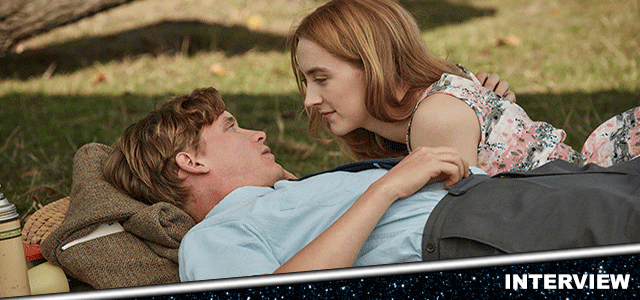
On release in selected Cineworlds from this Friday, On Chesil Beach is the poignant story of a romance seemingly doomed to failure.
Author Ian McEwan adapts his own Booker Prize-nominated story, recounting the early 1960s romance between Florence (Lady Bird Oscar nominee Saoirse Ronan) and Edward (The Sense of an Ending's Billy Howle). Having enjoyed a whirlwind courtship, the two youngsters get married and travel to Dorset to enjoy their honeymoon. However, all kinds of recriminations and anxieties soon rise to the surface as they both come to terms with who they are, and what their relationship means.
On Chesil Beach marks the feature film debut of celebrated theatre director Dominic Cooke, and features powerful performances from its leads. We were delighted to catch up with Billy to discuss his preparation for the role, the power of McEwan's story and his chemistry with Ronan.
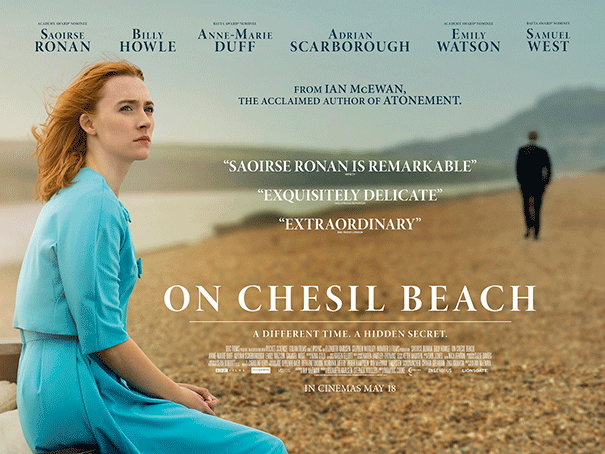
Edward is an incredibly complex and interesting character that Ian McEwan fashions. What attracted you to the role in the film?
Well, Ian's very good at writing multidimensional characters. So all the raw materials were there. It's written by Ian McEwan, so I couldn't ask for better. He also adapted the story himself, so that was fascinating. It's also about a period in history that no one speaks about, because we assume nothing was going on. But in actual fact, that's not true of any period in history.
Beyond that, it was the people I knew I was going to be working with. That had a lot of pulling power also. But first and foremost, it was the story. I think it's a beautifully tragic, multifaceted tale of romance and how that can go really, really wrong.
You raise the point there that Ian McEwan adapts his own novella, which is relatively unusual. Did you work with him on the development of Edward as a character?
Ian was very open. I can't speak for him but I'm sure he wrestled with his own writing in terms of how to present the script to us actors. And that was only a draft. We initially didn't have a shooting script.
But yeah, before things had been fixed, Dominic, Saoirse and Ian and I sat together for about a week and we just worked from the script, talking about our own ideas and interpretations. Ian was very forthcoming with any information that wasn't on the page. There wasn't much to be said there, because his writing is very detailed anyway.
Saoirse and I had both read the novella anyway and I was aware of it even earlier, so it was interesting trying to forget about the novella. There's a lot of detail in there that isn't in the script so we had to... not forget that it existed, necessarily, but use the novella as our blueprint, and the script subsequently became our gospel. You come to realise the novel is a separate entity.
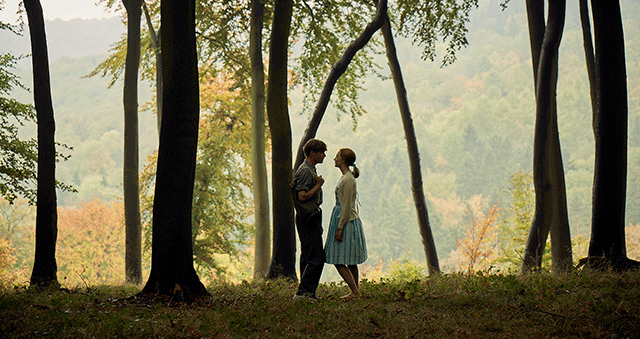
So, is it a case of reframing your understanding of the novella, using it as a basis and making it cinematic?
Exactly, and of course not all of that responsibility was on my shoulders. It was a shared responsibility. It was a truly collaborative process and I believe that filmmaking ought to be. I believe that if it isn't, it tends not to be too creative.
So yeah, there was a democracy that surrounded the decision-making process. But with regard to the novel, there were things I kept in the back of my head, decisions about how I wanted to portray Edward that may have got in the way if discussed on set. I might ask Dominic about Edward behaving in a certain way and he'd remind me that it's in the novel. It was tricky at times but it all informed how I approached the character.
On the subject of the story itself, as with all Ian McEwan's material, it doesn't deal in absolutes. It's about the weaknesses that exist in all of us as people, which makes it a very intriguing read. How exciting is it for you as an actor to translate that on to the big screen?
Yes, very exciting. Absolutes, as you say, can be either very liberating or very confining. But Ian allows you to create a really wide scope of emotions. Sorry does that answer your question?
Yes, absolutely! To take a sidestep, I first saw you in in E4 series Glue, written by Jack Thorne. That was a very difficult yet compelling character. You've also performed on stage in Ibsen's Ghosts, a similarly challenging part, so as an actor, is that sense of inner conflict in characters something you find interesting?
Definitely. Inner conflict is always intriguing to play. I mean, quite early on before my career even started – I left drama school about five years ago – lots of people who met me would have assumed I'd have gone to play comic roles. Light-hearted, funny and quirky characters.
But what I'm interested in is bringing light, even frivolity, sometimes, to the darkest facets of the human condition. I'm fascinated by absurdity. I love inappropriate reactions to things. Like, for instance, someone giggling at a funeral – there's something perversely human about that. A lot of that comes from our expectations as to how someone will behave in any given circumstance versus how they actually behave, and how surprising that can be.
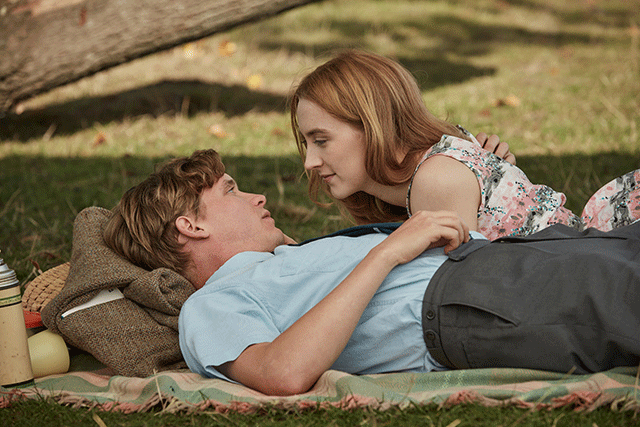
Well that happens in the film. Florence and Edward feel the need to live up to expectations, imposed both by each other and wider society.
Yeah, and it's a very unique situation. Like when they first become sexually intimate with each other – no one teaches you what to do in those circumstances.
Florence has this manual that she reads, which in itself seems like a set of instructions. And the way it's worded, it's brutal and terrifying. As a person, I'm not easy to make blush but when I first saw that scene, I went slightly red at the cheek. And it is really funny, because in the scene there's this English, apologetic thing happening, which still exists today.
People can still be prudish about that particular topic. It can be talked about, but often in a crude, crass way, which often feels like over-compensation. But having an open, honest conversation about lovemaking at the time in which the film is set – it didn't really happen. Particularly for men like Edward. But like in sex ed in schools, there's no emotional ed to go with it. Love is not sex. They're two very different things.
There is an emotional, as opposed to physical, side of loving a person that comes with understanding, compassion and kindness. And of course, one of the most important things is empathy, and listening. Unfortunately, in the case of the film, Edward is unable to listen properly to Florence.
You've hit on the heart of the story there, I think. That lack of empathy causes the road to ruin, which is why it's such a devastating story.
It is, and I think that's a universal theme. This timeless idea of, "Just bloody listen to each other" [laughs].
The story is a very intimate one that hinges on the interaction between Edward and Florence, largely in this one Dorset hotel room. The way that both you and Saoirse Ronan conveyed that sense of trepidation and awkwardness was extraordinary. What was the nature of the rehearsal process in order to get that body language right?
It was a long process but fortunately for us, whether this was pre-planning on the production team's part or not, the shooting schedule allowed us to develop the initial wooing and courtship that eventually leads up to the scene in the hotel.
So, we shot all of that stuff first, and then we had a week's reprieve in which we could draw on all these memories, if you like. This history between the two characters that we'd created when shooting the previous scenes. So, when we eventually arrived in the hotel room, that felt very authentic. That was quite fortuitous.
But beyond that, in terms of rehearsal, it just required a lot of trust between Saoirse and I, and a lot of openness, honesty and candidness. We'd created this bond and we were also able to enjoy ourselves, to have a laugh. Had it been awkward in real life, maybe the scene wouldn't have come off as well as it did.
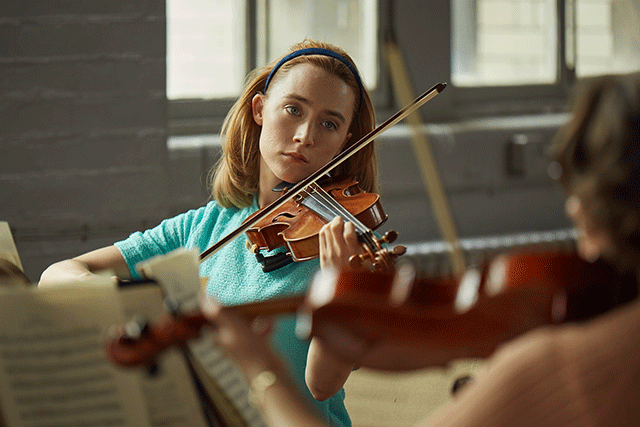
You've appeared in several literary adaptations now, including this, The Sense of an Ending and also Witness for the Prosecution. In your opinion, what makes an effective screen adaptation of a book?
I can't remember who said this, but eventually you've got to throw the book at the wall and smash it into a thousand pieces, before reassembling it again.
More often than not, you have this blueprint, this manuscript, if you like, and it's a set of guidelines. I'm not saying you have to base something loosely on that. Obviously, you have to honour what the writer's original intention was, and in this case, it's Ian McEwan honouring himself. I don't envy him that. I can't imagine how difficult it must have been to omit certain details and sacrifice material in order to make room.
It's also manipulating time, because writing a screenplay is a very particular skill. Witness for the Prosecution, for instance, is originally a short story, so how do you fashion that much drama out of 15 pages? It's a tricky one to answer.
Looking up your biography, you hail from Staffordshire, as does fellow British actor Paddy Considine. What do they put in the water around there to produce such good actors?
[Laughs] I dunno! I was actually born in Stoke-on-Trent, but that area has a really vibrant cultural history and theatrical history. I don't know if it's anything in the water. I was very blessed and lucky to be brought up in a home where there was ready access to all forms of artistic media. I think it's ultimately down to my upbringing and my parents.
Billy, thanks very much!
You're welcome!
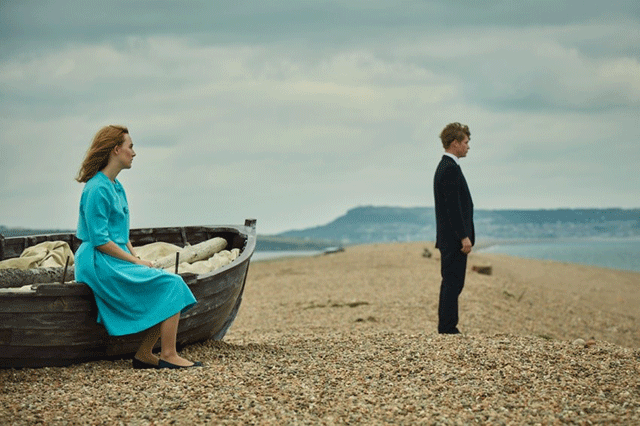
Click here to book your tickets for On Chesil Beach and stay tuned to the blog for our interview with the film's director, Dominic Cooke.

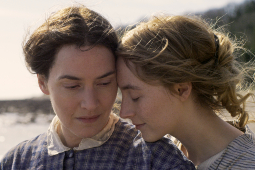
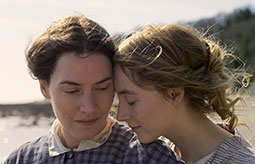
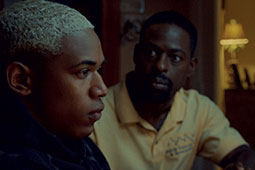


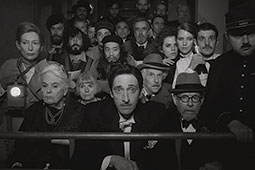
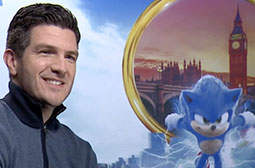
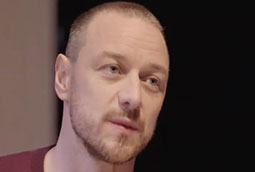
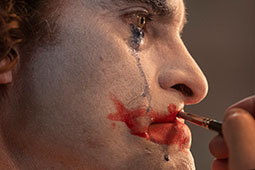
.jpg)
.jpg)

.jpg)
.png)



